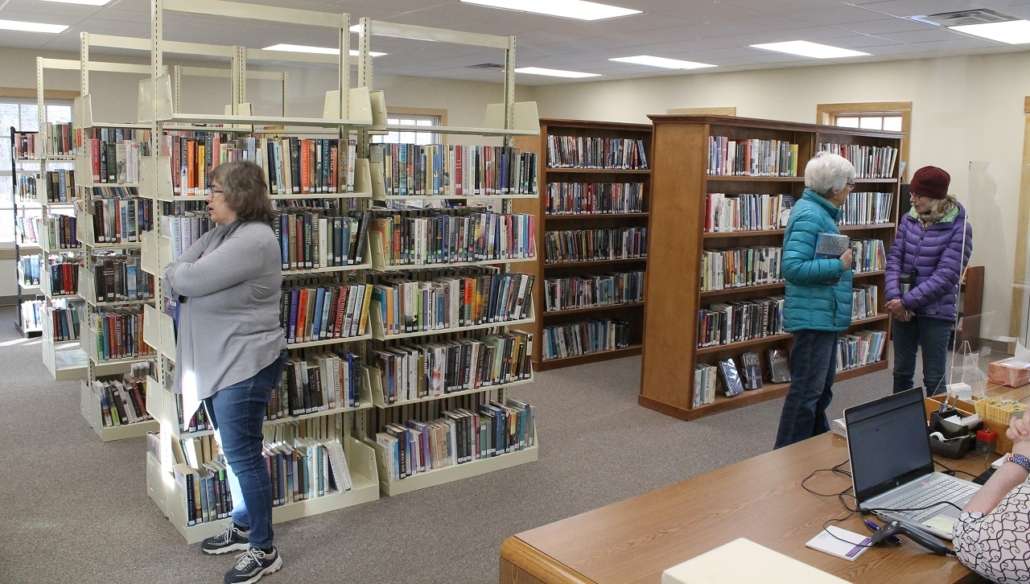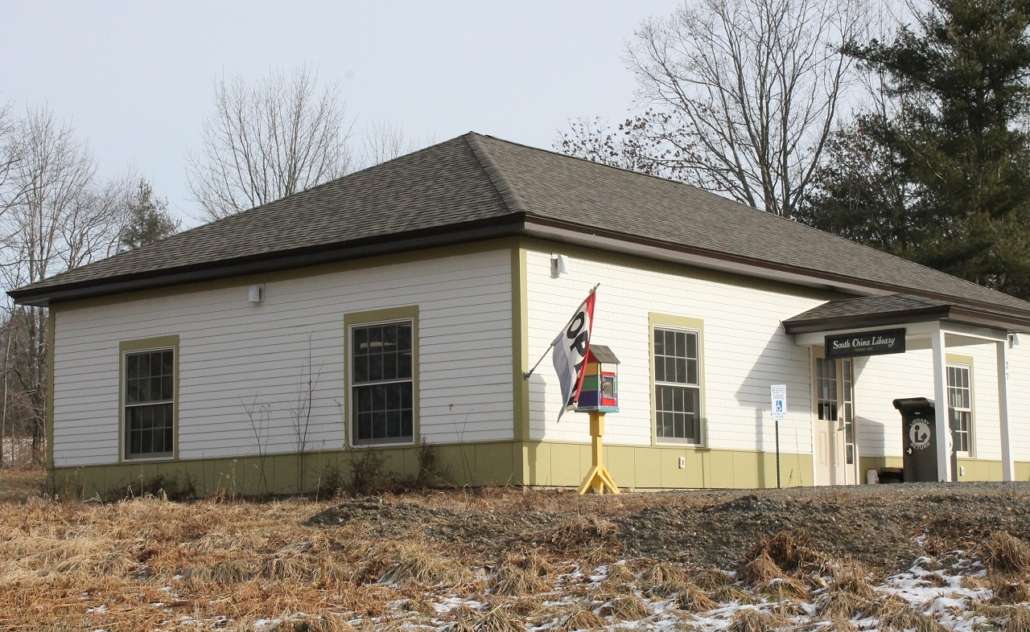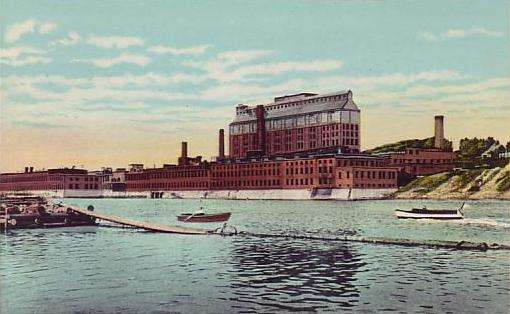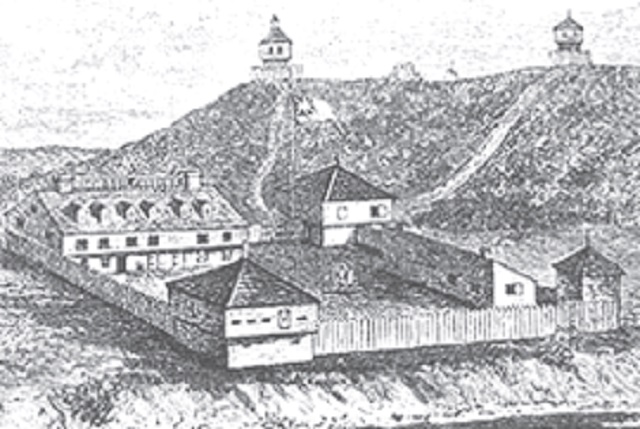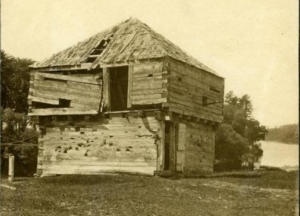Becky Hapgood cited for 30 years of community service
by Mary Grow
Ask China Town Manager Rebecca “Becky” Hapgood what’s the best part of her job, and she gives you a quick double reply: “Every day is different; and the people.”
“People” includes her fellow town employees, residents, visitors – everybody she meets, personally or virtually.
Variety and people have been central themes since Hapgood was first hired by the Town of China on Feb. 2, 1994 – 30 years ago.
She graduated in 1992 from Thomas College, in Waterville, with a degree in business management and experience helping in her family businesses, Back’s Dairy Bar, in South China, and an antique shop. Her plan was to start her own business.
Why, then, apply for a town job?
“Because my mother made me,” Hapgood answered, not entirely seriously.
The connection, she explained, was that her mother worked with Town Manager Gary Brown’s wife, Wanda. Brown had an opening for a deputy clerk; Hapgood applied and was hired.
That job, like every position in the office, involved learning and doing “a whole lot of everything,” with days seldom going as planned.
Brown doubled as town clerk in 1995, Hapgood found in town records. By the spring of 1996, Daniel L’Heureux was town manager and she was town clerk.
Dennis Heath succeeded L’Heureux in 2018, but didn’t stay long. Hapgood became town manager on July 18, 2020.
“Dennis set me up for success,” Hapgood commented, by sharing records and information and answering questions. She translates this openness to the entire office’s relationship with residents: nothing is hidden.
Her career has focused on providing the best possible service to everyone who comes in, calls in or otherwise gets in touch. She summarized her daily goals as “making somebody’s day, changing somebody’s day, helping somebody out.”
Moving to the manager’s private office has limited her interactions, but she still pops out to the counter when she can, especially if she overhears someone giving other staff a hard time.
Recently, she said, the new transfer station entrance stickers have created dissatisfaction and complaints. She understands: people don’t like change, and “we’re government and people don’t like government.”
But, she said, “This is local government, and we can help.”
She sees town employees as “all about trying to find the solution. We’re all willing to help; that’s what we’re here for. We want to do the best for our residents, to be the best town.”
Hapgood welcomes suggestions for running the town better. She habitually urges residents to join a town board or committee to share their ideas.
Her reaction to gripes and venting on social media is to encourage people, before they complain, to consider how their words could affect others, and to contact the town office to make sure they’re acting on accurate and complete information.
Looking back over the last 30 years, Hapgood summarized, “This is not what I thought I’d be doing in life, but I’m having a blast; 99.9 percent of the time, I love my job.”
[You might like: New China town manager takes over with unprecedented local support]


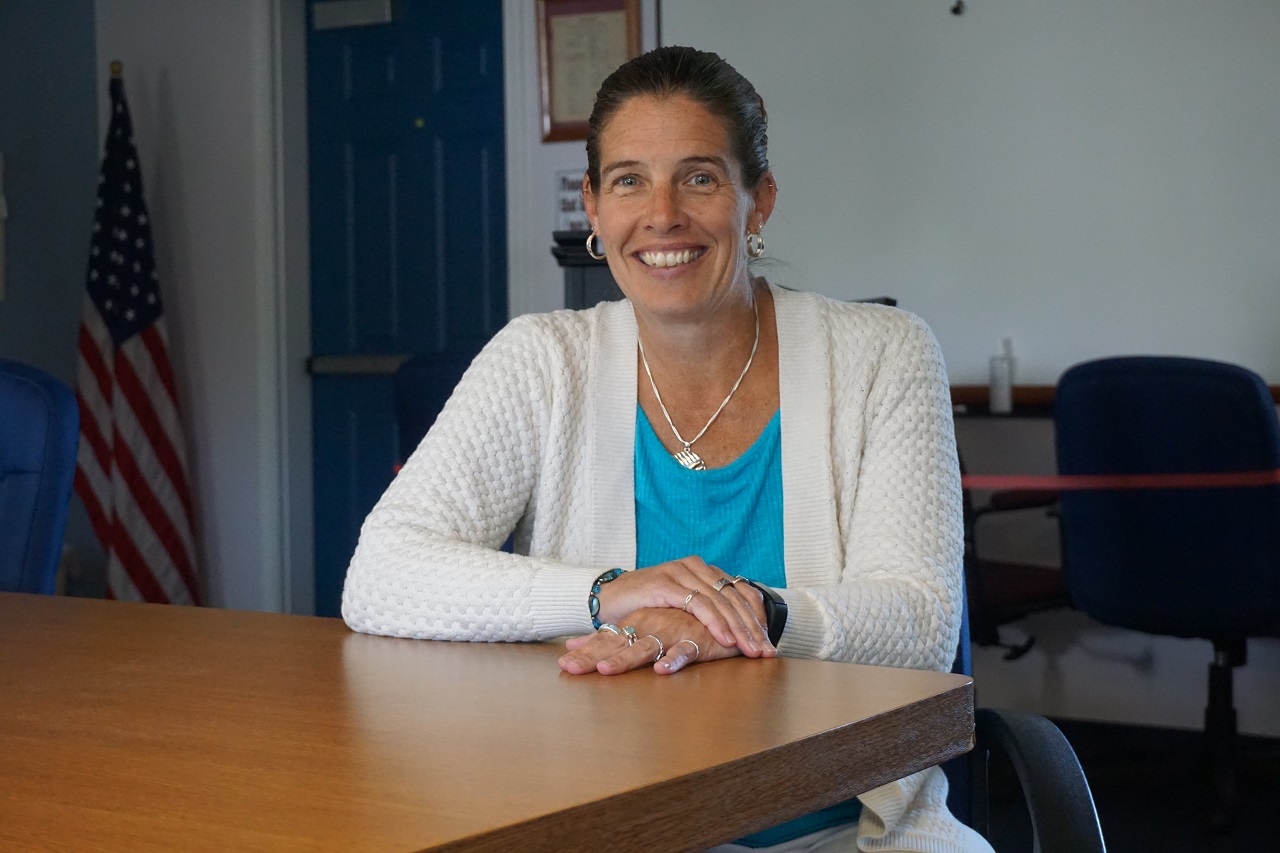




 Grade 12
Grade 12